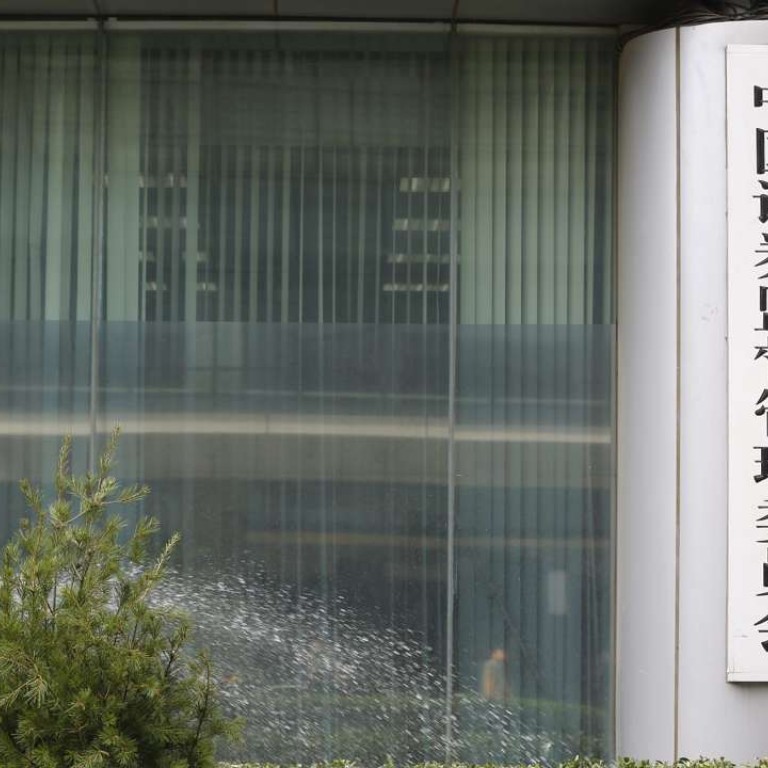
Door is closing on China’s back-door listings but it won’t be slammed shut
State-owned shells see a way to cash in
“We have noticed the great price difference in the domestic and the US market, and the speculation about shell companies, and are studying in-depth about the influences.”
Zhang Xiaojun, China Securities Regulatory Commission spokesman
If there was any doubt that Beijing is intent on cooling off the back-door listing fever, this statement, made at routine press conference on Friday, cleared it up once and for all.
While it may sound non-committal, one must read it in the context of the mainland stock market and its regulator’s mood nowadays.
In short, any unfounded rumour with a negative impact on market sentiment will be quickly refuted by the regulator. The spokesman’s confirmation of concern, however, rings alarms.
The commission is understood to have held an internal meeting recently to pass down a policy designed to take the heat out of the spree. The pressure for the move was “external”.
The graft-fighters are also unhappy about the boom in reverse takeovers
In the past three years, more than 40 mainland entrepreneurs have privatised their business listed in the United States and Hong Kong to pave the way for listing back home, where valuations can easily double or triple.
Given there’s a queue of 800 issuers for initial public offerings that will take six years to clean up, a reverse takeover via a shell company is the most popular option.
To the commission, this back-door listing spree has been quite helpful, at least for the moment.
It boosts market sentiment, revives many of its defunct listed companies and relieves pressure on the long queue for an IPO.
Officials at the State Administration of Foreign Exchange, however, see it differently. They are understood to be concerned about the drain on foreign currency reserves.
Wanda Commercial Property’s plan is quite telling in this sense. Despite having some claim to being China’s wealthiest man, Wanda chairman Wang Jialin could not raise more than HK$33 billion to privatise his property business listed here. Bankers are uneasy with the regulatory risk.
Instead, he has raised the sum from private equity. In return, the financiers will get an eye popping gain should the relisting succeed or at least a 10 per cent annual return if nothing happens before 2018.
Both domestic and international money is welcome. According to the pitch book, mainland investors would chip in by depositing the money with a mainland bank which would then instruct its Hong Kong branch to provide a bridging loan for the investment.
That is a classical conduit for draining foreign exchange. The amount of money might not have sounded too big in the old days. But when the yuan is on the defensive, the authorities will tolerate no leakage.
The graft-fighters are also unhappy about the boom in reverse takeovers.
When the returns are enormous and everything hinges on the regulators, corruption finds fertile ground. Opaque holdings via private equity make it hard to hunt down the benefactors.
In the case of Focus Media, the private equity partners paid US$3.78 billion to take the advertising company off the market in May 2013.
When its acquisition of a shell company was approved in December, its valuation rocketed to US$11 billion – that’s a US$7.28 billion, or 95 per cent, gain within three years.
Who are the lucky few? The public has no idea.
On the initial list of financiers in 2013, US-based Carlyle Group, mainland-based FountainVest Partners, Citic Capital and China Everbright were listed the initial investors.
They were the primary arrangers who on-sold much of their stakes, and risk, to other investors.
A few months before the reverse takeover, Focus Media’s shareholders’ list was updated to include 43 investors. Among them are six overseas investment vehicles, 30 mainland private equity outfits and seven others. Each is holding a few per cent.
These concerns are real. However, they won’t be enough to bring back-door listings to a halt.
The government needs them. The fact is a listed shell is probably the most valuable asset of many state-owned enterprises nowadays. It can easily fetch 5 billion yuan.
Back-door listings are the last chance for them to cash in to fund lay-offs, repay debt or to do whatever restructuring the government is planning.
It is therefore not surprising to see that more than 60 per cent of the reverse takeovers approved in the past 12 months involved state-owned shells.
The door is closing but is not shut. Those most likely to get in would involve state-owned shells, no privatisation and therefore no exodus of foreign exchange and little private equity. Of course, political clout does matter.

